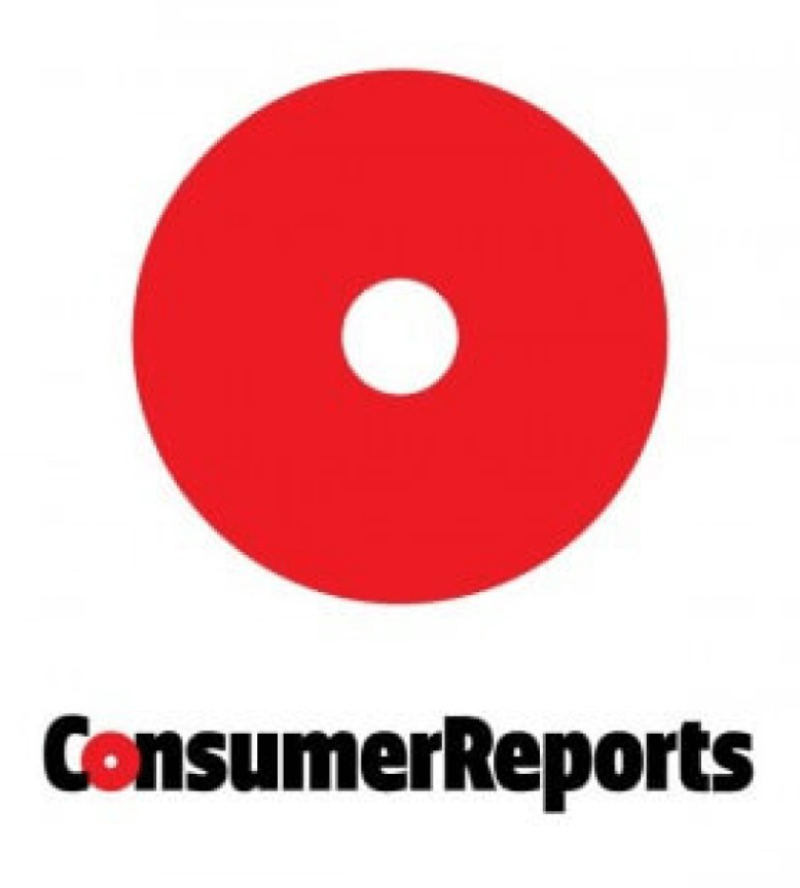Consumer Reports magazine is published by Consumers Union (CU), a US-based nonprofit organization that campaigns and advocates for the passage of consumer protection laws in states and Congress, and more recently has emerged as one of the leading proponents of the belief that genetically modified foods are unsafe and under regulated. CU also operates a subsidiary Foundation and 501c4 lobbying arm Consumers Union Action Fund through which it supports various initiatives.
While the Consumers Union is mostly focused on testing toasters and evaluating SUVs, a small but influential division devotes itself to food policy; it has been outspoken in issuing warnings about GM foods and calling for strict labeling.
[Read GLP Newsletter Feature: 5 reasons how Consumer Reports rejects science on GMOs]
In 2000 CU filed USDA docket comments asking for a “reasonable certainty of no harm” standard for evaluating GMO safety. Via its Consumer Policy Institute, CU’s first foray into anti-biotech activism came in 2002 when it joined other activist groups in support of an Oregon GMO-labeling ballot measure. (It failed 70–30.) In 2003 CU again joined an anti-biotech coalition, this time to oppose federal legislation that it claimed would permit the cultivation of GE fish.
CU’s tactics include aggressive online promotions and advertising (spending nearly $10 million a year on Internet advertising with Google alone) and publicity via extensive media relations efforts. It also joins in litigation, legislative and regulatory lobbying and direct grant making with other organizations like the Center for Food Safety in campaigns opposing various modern agriculture technologies and practices while lending support to organic food and natural product industry initiatives.
Most of CU’s anti-biotech drumbeats come from food policy “expert” Jean Halloran (whose academic credentials include a B.A. from Swarthmore), senior scientist Michael Hansen PhD (Evolutionary Biology), and environmental health scientist Urvashi Rangan, PhD (Environmental Health Sciences). CU anti-biotech activities include generation of promotional materials (videos, press releases, public service announcements, etc…), legislative lobbying and presentation of testimony, report writing and promotion of “research” (typically interpretations of other studies) claiming health, environment and other concerns associated with agricultural biotechnology products. CU’s Hansen has served as a member of the Center for Food Safety’s advisory board and is a frequent co-presenter at their events.
CU/CR have greatly expanded their public criticism of GM foods in recent years. In October 2014, CR published “Where GMOs hide in your food,” detailing how consumers could avoid GMOs that “lurk” in the food supply. Its position is that GM foods have not been “proven safe” and the government does not mandate testing of GM crops and foods (although no crop or food has been approved without extensive testing submitted to the US government for evaluation):
You may be surprised to know that the federal government has not mandated that genetically modified organisms be proved safe before they’re used in your food. … “There hasn’t been enough research to determine whether GMOs are harmful to people,” says Michael Hansen, Ph.D., senior scientist at Consumers Union and an authority on genetic engineering. “But scientists around the world agree that GMOs have the potential to introduce allergens and create other unintended changes that may affect health.”
Critics have pointed out that Hansen and CU’s central claim–that GM crops do not require genetically engineered foods to be proven safe before they can go on the market despite significant safety concerns is disingenuous at best. As geneticist Val Giddings has noted:
FDA requires all foods placed on the market in the United States to be safe. This requirement applies equally to “bioengineered” foods and all others. Placing any unsafe food on the market is a violation of the Federal Food Drug & Cosmetic Act carrying criminal penalties. To ensure that bioengineered foods meet this safety requirement, FDA has based its review process and regulations on the findings of international working groups of experts. These have concluded after many years of detailed consideration that
- Bioengineered foods are not intrinsically different from other foods;
- The process of producing them and the attendant potential hazards are no different than those we are familiar with from other foods;
- Absent any change in material composition resulting from the “bioengineering”, such foods are “substantially equivalent” to other foods.
For these reasons, FDA concluded that specific regulations and labeling requirements for bioengineered foods are scientifically unjustifiable. There is a strong, worldwide consensus of scientific opinion in agreement.
The claim of “significant safety concerns” is false, robustly contradicted by the scientific literature, worldwide scientific opinion, and vast experience.
Consumers Union
101 Truman Avenue
Yonkers, NY 10703
www.consumersunion.org
CAMPAIGNS / ACTIVITIES
- Ag Biotech Advocacy Category: Secondary
- Key personnel: Jean Halloran, Michael Hansen, Urvashi Rangan
- 2009 revenue: $244,574,896
- 2009 expenses: $243,662,865
- Primary income sources: Membership subscriptions (Consumer Reports); Foundations; Contributions
- 501c3
Label GMOs
Consumer Union (CU) has and continues to actively advocate for the labeling of genetically modified organisms (GMOs). It has insisted that foods containing over 1% t of genetically engineered (GE) ingredients be labelled. On September 17, 2013 CU and other consumer advocacy groups joined Senator Dave Koehler of the Illinois State Senate in a rally in downtown Chicago to support SB1666, a bill that would require all foods containing over 1% genetically engineered ingredients to be labelled[1].
Its scientists have testified before lawmakers about the dangers associated with not labeling GMOs. While testifying before the Illinois House’s Agriculture and Conservation Committee in September 2013, CU’s Michael Hansen said that one big problem with safety assessments of GE plants is that there have been very few long-term animal feeding studies, with most feeding studies being of 90 days or shorter.
KEY PEOPLE
- Board of Directors
- Walter D. Bristol, Chair, Former Executive Vice President for Corporate Operations and CFO, American Heart Association
- Thomas A. Wathen, Vice Chair, Deputy Director, Pew Environment Group
- Steven R. Hill, Treasurer, Former Director, Washington State Department of Retirement Systems
- Diane Archer, Secretary Health-Care Consultant
- Marcia Aronoff, Retired Senior Vice President for Programs Environmental Defense Fund
- Robert E. Baensch, Director, Publishing Programs SUNY Global Center, New York
- Barbara S. Friedman, Legal Administrator and Chief Administrative Officer, The World Bank
- Anthony Iton, M.D., Senior Vice President, Healthy Communities The California Endowment
- Carol Izumi,Clinical Professor of Law University of California,Hastings College of the Law
- Annette LoVoi, Director, Financial Access and Asset Building Program National Appleseed
- Heather McGhee, Vice President, Policy and Outreach Demos (New York office)
- Ed Mierzwinski, Consumer Program Director United States Public Interest Research Group
- Craig Newmark, Founder,Craigslist and craigconnects.org
- Willard P. Ogburn, Executive Director, National Consumer Law Center
- Martin Schneider, Founder Health Pages
- Micah Sifry,Co-founder, Editor, and Curator Personal Democracy Media
- Thomas C. Voice, Professor and Director, Environmental Engineering Program, Michigan State University
”Experts”
AFFILIATIONS
CRITICISMS
- Geneticist Val Giddings has claimed in an extensively documented analysis that “Consumers Union makes false claims against the safety of genetically modified foods based on ideology not science.”
- Journalist Steven Brill (Brills Content) expose claimed CU rigged roll-over reports to denigrate gas guzzling SUVs not based on safety, but based on their opposition to the environmental impact concerns.[4]
- JunkScience.com maintained a list of various allegations suggesting Consumers Union bias was used in various manners to influence published reports in their Consumer Reports magazine including contributing to the 1989 Alar pesticide scare, pthalates and other attacks on pesticides.[5]
Resources
References
- 1 http://consumersunion.org/news/national-groups-join-illinois-consumers-to-rally-for-gmo-labels-at-senate-hearing/
- 2 http://consumersunion.org/experts/meg-bohne/
- 3 http://notinmyfood.org/posts/3756-gmo-labeling-gains-momentum-in-new-england-with-a-few-catches
- 4 http://junksciencearchive.com/consumer/consumer_suv.html
- 5 http://junksciencearchive.com/consumer/consumer_about.html






























